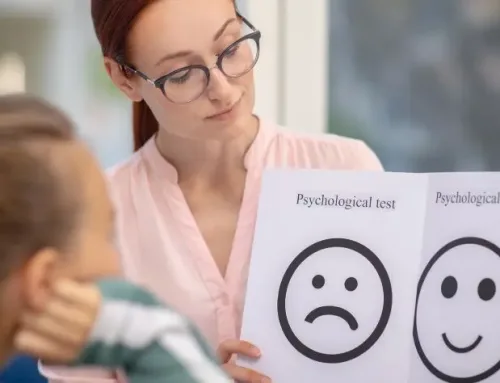How Long Does It Take to Become a Therapist in California: Licensing Guide

Becoming a licensed therapist is a deeply rewarding path, one that blends compassion, academic rigor, and hands-on training. If you are wondering how long it takes to become a therapist in California, the answer depends on your chosen license type and educational background. Whether your goal is to become a Licensed Marriage and Family Therapist (LMFT), Licensed Clinical Social Worker (LCSW), Licensed Professional Clinical Counselor (LPCC), or Licensed Clinical Psycholthe journey is defined by specific milestones.
California sets high standards to ensure mental health professionals are fully prepared to support diverse client needs. From undergraduate to graduate education, supervised clinical experiences, and licensing exams, each step builds your clinical expertise. So how do you plan your journey with confidence? Let’s take a closer look.
How Long Does It Take to Become a Therapist in California: Licensing Guide
What Is a Licensed Therapist in California?
In California, a range of professional pathways exist in the mental health field that lead towards becoming a licensed psychotherapist. The state offers multiple licensure options, each tailored to a specific scope of practice, population, and level of responsibility. These licenses ensure that professionals are well-trained, ethically grounded, and prepared to address the mental health care needs of individuals, couples, families, and communities across diverse settings.
California Therapist Licensing Categories
California recognizes several core licenses for therapists, each requiring a graduate degree, supervised clinical experience, and passage of licensure exams:
- Licensed Marriage and Family Therapist (LMFT) – Focuses on relational and family systems therapy.
- Licensed Professional Clinical Counselor (LPCC) – Specializes in individual therapy for a wide range of mental health issues.
- Licensed Clinical Social Worker (LCSW) – Integrates clinical practice with social support systems and advocacy.
- Licensed Psychologist – Holds a doctoral degree (PhD or PsyD) and is trained in therapy, assessment, and diagnosis at the highest level of clinical independence.
Licensed therapists in California can work in private practices, hospitals, schools, community agencies, and government organizations. Some choose to specialize further in areas like trauma, substance use, children and adolescents, or integrated health. Each license reflects a commitment to excellence and a passion for helping others thrive.
Complete Timeline to Become a Licensed Therapist in California
Becoming a licensed therapist in California involves a series of well-structured educational and clinical milestones. From undergraduate education to postgraduate supervision, each step builds toward licensure and professional readiness. While timelines can vary slightly based on personal circumstances, academic background, and licensure type, the journey follows a clear and rewarding path—especially for those aiming to practice as a Licensed Psychologist.
Phase 1: Bachelor’s Degree (4 Years)
A bachelor’s degree is the foundation for any clinical psychology or professional mental health counseling path. Most students major in psychology, social work, or a related field that provides prerequisite coursework for graduate programs. Strong academic performance and relevant volunteer experience can boost graduate school applications.
- Psychology, social work, or related field
- Prerequisite coursework for graduate programs
- GPA requirements for competitive admission
- Volunteer experience in mental health settings
Phase 2: Master’s Degree (2-3 Years)
Earning a master’s degree in psychology, counseling, or a related discipline deepens academic understanding and introduces practical skills. Depending on the MA degree, graduates may be eligible to pursue a license in the mental health field and practice in organisational settings or private practice. This phase can also prepare individuals for more advanced doctoral-level education and training.
Phase 3: SCUHS Doctor of Psychology (3.3 Years)
At Southern California University of Health Sciences (SCUHS), students can complete their PsyD in just 3.3 years through a rigorous, blended program format. Our program is grounded in contemporary psychodynamic theory and integrates neuroscience and trauma-informed care into a whole-person care. SCUHS prepares students for diverse, multicultural therapy settings and provides a path toward licensure as Clinical Psychologist in California. Graduates can then decide whether they continue to practice under their current license or pursue licensure in clinical psychology
Phase 4: Predoctoral Internship (1 Year)
The internship year provides an opportunity to apply doctoral-level knowledge in professional settings under qualified supervision.
After completing three years of academic coursework and passing the comprehensive exam, students may begin accruing supervised hours toward licensure in psychology. Students can earn up to 1,500 hours of supervised professional experience predoctorally, either through a full-time internship or part-time placements that extend over
Phase 5: Postdoctoral Supervision (1–2 Years)
After earning a doctorate, graduates in California complete the remaining supervised professional experience required for licensure. The California Board of Psychology mandates at least 1,500 postdoctoral hours, typically completed over the course of a year in a full-time internship, fellowship, or supervised position such as a Psychological Associate in private practice.
Once the Board verifies a total of 3,000 supervised professional hours—combining predoctoral and postdoctoral experience—candidates become eligible to sit for the state licensure examination. Upon passing, they are authorized to practice independently as licensed psychologists. For most professionals, the entire process from undergraduate study through licensure spans approximately 11 to 15 years.
Licensed Psychologist (SCUHS Pathway)
The Licensed Psychologist credential offers the broadest scope of practice and full professional autonomy in California. With a doctoral-level education, psychologists conduct psychotherapy, psychodiagnostic assessments, and independent report writing with no ongoing supervision after licensure. SCUHS offers a streamlined 3.3-year PsyD program that integrates academic education with clinical training and whole-person care, making this the most comprehensive and efficient path to advanced licensure.
-
- Total timeline: minimum 11.3 -12 years
- Highest level of independent therapy practice
- No ongoing supervision requirements after licensure
- Psychological assessment and testing capabilities
- Broadest scope of practice in California
Start your PsyD journey today—apply now or connect with our admissions team at admissions@scuhs.edu for personalized support.
Licensed Marriage and Family Therapist (LMFT)
LMFTs work with individuals, couples, and families on relational and emotional issues. This path requires a master’s degree and extensive supervised hours. While it offers a clinical foundation, the scope of practice is more focused compared to that of psychologists.
Licensed Professional Clinical Counselor (LPCC)
The LPCC license prepares professionals to provide individual and group therapy in a range of mental health settings. It requires a master’s degree and 3,000 hours of supervision, with some settings requiring continued oversight even after licensure.
Licensed Clinical Social Worker (LCSW)
LCSWs focus on clinical mental health support along with case management and advocacy. With a strong foundation in social systems and public health, this license suits those interested in both therapy and social service leadership roles. Supervision is essential for licensure and clinical growth.
Why Choose SCUHS PsyD for California Therapy Practice
Choosing the right doctoral program is a pivotal decision on the path to becoming a licensed therapist in California. At SCUHS, we have designed our Doctor of Psychology (PsyD) in Psychodynamic Psychology program to meet the needs of motivated professionals who want to make a meaningful contribution in the field. Our approach is tailored to the diverse mental health landscape in California, with training that reflects the realities of today’s need for qualified mental health care. We pair accelerated progress with exceptional depth, giving students the tools to step confidently into practice.
Accelerated Timeline to Highest Credentials
Our program is structured for maximum efficiency and deep preparation. We offer a 3.3-year completion timeline—significantly faster than traditional 4 to 7-year doctoral programs—while maintaining full alignment with the standards required for licensure as a clinical psychologist in California. This means earlier entry into independent practice and reduced overall investment of time and resources.
-
- 3.3-year completion vs 4 to 7 years in traditional psychology programs
- Fast path to Licensed Psychologist status
- Earlier entry into independent practice of psychology in California
- Reduced total educational investment time
California-Based Training Excellence
We prepare experienced mental health professionals to address the needs of a modern and diverse population, while also keeping California’s specific licensing pathin mind. Under the leadership of Dr. Jens Schmidt, who has extensive clinical expertise rooted in California’s mental health system, our students benefit from locally relevant education.
Comprehensive Clinical Preparation
We offer rigorous academic and clinical education that prepares students to serve a wide range of communities. Our psychodynamic foundation is thoughtfully integrated with evidence-based practices, emphasizing multicultural competence and whole-person care. Learning is supported through advanced digital platforms and in-person experiences that mirror the realities of modern psychological practice in California.
California Supervision Requirements
Supervised professional experience plays a vital role in preparing future therapists for independent practice in California. Whether you’re pursuing licensure as a psychologist or aiming for a master’s-level license, supervision ensures that you gain practical, guided experience in real clinical settings. The supervision phase is where academic knowledge transforms into professional skill. Understanding the supervision structure helps you plan your education and career pathway more effectively.
Licensed Psychologist Supervision
Graduates of SCUHS’s PsyD program enter the supervision process with a solid clinical foundation. The pathway to licensure as a psychologist includes both a predoctoral and a postdoctoral supervised experience, which has to amount to a minimum of 3,000 hours total.
- Predoctoral supervised experience: Up to 1,500 hours can be accrued prior to completing the doctoral degree
- Postdoctoral supervised experience: a minimum of 1,500 hours of the 3,000 hours total must be accrued after the degree conferral.
- At a minimum 1 year of postdoctoral supervised experience
Master’s Level License Supervision
If you are pursuing licensure towards becoming a LMFT, LPCC, or LCSW, California requires a substantial period of post-degree supervision. These hours are earned under licensed professionals in approved settings and are typically completed over two or more years. In some roles, ongoing supervision continues even after licensure.
These are the general requirements:
- LMFT: 3,000 hours over 2+ years
- LPCC: 3,000 hours over 2+ years
- LCSW: 3,200 hours over 2+ years
- Ongoing supervision often required even after licensure
California Board Oversight and Compliance
All supervision requirements are regulated by California licensing boards to ensure consistency, safety, and quality in mental health practice. Boards provide clear guidelines for site approval, supervisor qualifications, and documentation. Staying informed and compliant throughout the supervision process is the obligation of each licensure applicant.
Expect to work within structured standards, including approved clinical settings, qualified supervision, and detailed progress tracking. These safeguards are in place to prepare you for transition into fully licensed practice.
California Licensing Examinations
To become a licensed mental health professional in California, you will need to pass a series of state and national examinations tailored to your licensure path. These exams assess your knowledge of core psychological principles, clinical practices, and the legal and ethical standards of care.
Licensed Psychologist Examinations
For those pursuing licensure as a psychologist in California, two exams are required.
- Examination for Professional Practice in Psychology (EPPP)
- California Psychology Laws and Ethics Examination
SCUHS prepares students through integrated coursework, helping our graduates approach these milestones with clarity. We prioritize both competence and confidence.
Master’s Level License Examinations
Each master’s-level license type has its own combination of exams. These ensure competency in both general clinical knowledge and California-specific legal and ethical guidelines. Preparation typically includes a mix of self-study, structured prep programs, and practical experience.
LMFTs, LPCCs, and LCSWs must pass:
- LMFT: California Law and Ethics + National MFT Examination
- LPCC: California Law and Ethics + National Counselor Examination
- LCSW: California Law and Ethics + ASWB Clinical Examination
- Multiple examination requirements and fees
Examination Preparation and Timeline
A thoughtful exam preparation plan can make a major difference. From choosing the right study materials to managing your application timeline, early organization sets you up for success. At SCUHS, we integrate test readiness throughout the program so you can approach these milestones with clarity and confidence.
Expect to work with preparation courses, digital platforms, and faculty support. Licensing boards also require continuing education, so professionals stay up to date even after becoming licensed
Factors That Affect Timeline in California
The path to becoming a licensed therapist or psychologist in California can vary significantly depending on several key factors. From the type of educational program you choose to your own life circumstances and the dynamics of the California job market, many elements shape how long the process takes. By understanding these influences early on, you can plan proactively and make informed decisions that align with your goals. At SCUHS, we help you map out your journey clearly and efficiently.
Educational Program Selection
Your choice of educational pathway plays a major role in determining your timeline. Our 3.3-year accelerated PsyD program at SCUHS offers a faster, more efficient route to becoming a licensed psychologist while maintaining clinical rigor and academic depth. Other programs often follow a 4–7-year trajectory, especially those with extended dissertation or practicum and internship requirements. Additionally, whether you pursue a master’s or doctoral route impacts scope of practice and total time invested. Always confirm that your chosen program is approved by the California licensing board.
- SCUHS accelerated 3.3-year timeline advantage
- Traditional psychology programs: 4–7 years
- Master’s vs doctoral level preparation differences
Individual Student Factors
Every student’s journey is shaped by their unique circumstances. If you are balancing work or family commitments, your pace through coursework and clinical hours might differ. Some students can dedicate themselves full-time, while others progress steadily through part-time study. Prior educational experience, transfer credits, or relevant fieldwork can also impact your progress. At SCUHS, we work closely with students to help navigate these variables and design a personalized, achievable timeline.
California Market Factors
California’s mental health field offers immense opportunity, but certain logistical realities can affect your licensing timeline. Securing a clinical training site may depend on local demand, and competition for top internships can be high. Licensing exam dates may also fill up quickly, and processing times with the California Board of Psychology can introduce additional wait periods. Staying organized and proactive is key—and we are here to support you every step of the way.
Cost Considerations for California Therapist Training
Pursuing a license as a therapist or psychologist in California is an investment—both in your education and in your future. While the journey involves upfront costs, thoughtful program selection and financial planning can create lasting value. At SCUHS, we have structured our PsyD program to help students advance efficiently while preparing for a career with strong earning potential and meaningful impact.
Our accelerated hybrid PsyD program is designed with long-term value in mind. By completing the program in just 3.3 years, students reduce both tuition burden and opportunity cost. Our California-based training builds strong professional networks, and the blended format offers flexibility that supports work-life balance. We also provide access to financial aid resources, scholarship opportunities, and personalized guidance to help make your investment more manageable.
- Accelerated timeline reduces opportunity costs
- Comprehensive training with broad career applications
- California-based education and networking advantages
- Financial aid and scholarship opportunities available
Explore your path to clinical practice—submit your application or contact admissions@scuhs.edu to get expert help planning your next move.
Total Cost Analysis
The full financial picture of becoming a therapist in California includes more than just tuition. Licensing exams, supervision hours, application fees, and living expenses during training all add up. Many students also consider their earning potential post-graduation when evaluating return on investment. Choosing a program with clear licensure outcomes, like SCUHS, can make the path more cost-effective in the long run—especially when factoring in the potential to begin earning earlier.
California Practice Financial Benefits
Licensed therapists and psychologists in California have access to diverse financial opportunities. As a Licensed Psychologist, you gain the ability to set your own fees, build an independent practice, and expand into supervision, assessment, and consulting. The profession offers not only a strong starting salary but also room for steady growth, professional development, and specialization. With smart planning and solid preparation, your training becomes a launchpad for lasting financial and professional success.
Timeline Comparison: SCUHS vs Other Pathways
Choosing the right path to become a licensed therapist or psychologist in California means understanding both the time investment and the long-term career impact. Each route—from master’s-level licensure to PsyD and PhD licensure —has its own timeline, training style, and professional outcomes. At SCUHS, we have designed our program to deliver the highest credentials with an efficient and clinically focused structure.
SCUHS Licensed Psychologist Pathway
Our hybrid PsyD pathway is built for students who already hold a master’s degree and are ready to pursue the highest level of clinical credentialing. With a 3.3-year PsyD program and the standard supervision requirements for licensure, our students reach independent practice status efficiently and are fully prepared for psychological assessment, diagnosis, and therapy in diverse settings.
- Master’s Degree: 2-3 years
- SCUHS PsyD Program: 3.3 years
- Postdoctoral Supervision: 2–3 years
- Total: minimum 7.3 years to independent Licensed Psychologist status
(not counting time for BA or BS) - Psychology License: Broadest scope of clinical practice and leadership opportunities
Traditional Psychology PhD Pathway
PhD programs in psychology emphasize academic research and theoretical development, often requiring 5 to 7 years of intensive study after a master’s degree. When accounting for undergraduate and graduate preparation, plus required predoctoral and postdoctoral supervised experience, the full pathway typically spans 12 to 15 years from the start of a bachelor’s degree to independent licensure.
With SCUHS’s practice-focused model, students can achieve equivalent credentials in less time, while still receiving strong clinical training aligned with California licensure.
Master’s Level License Pathways
Paths to licensure as an LMFT, LPCC, or LCSW can appear shorter at first glance. These licenses typically require a two-year master’s program followed by 2–4 years of supervised practice. While this route may be appropriate for some, it comes with a more limited scope of practice, lower earning potential, and—in many cases—ongoing supervision or role restrictions depending on the work setting.
Ready to Start Your California Therapy Career with SCUHS?
SCUHS offers a California-focused PsyD pathway designed to streamline your journey into independent clinical practice. With expert guidance on licensure timelines, personalized career consultations, and access to a network of successful alumni, we support your goals from day one. Our team also provides financial planning assistance and scholarship opportunities to help you make a confident investment in your future.
Start planning your career in therapy today—apply now or connect with us at admissions@scuhs.edu for personalized support.
Frequently Asked Questions
How long does it take to earn a PsyD degree?
Most PsyD programs take at a minimum 4 to 6 years to complete, depending on the structure and pace. At SCUHS, our accelerated PsyD can be completed in just 3.3 years post-master’s, allowing you to enter clinical practice sooner while still receiving comprehensive training.
Is the PsyD a good fit if I want to be a therapist?
Absolutely. The PsyD is specifically designed for those who want to work directly with clients as therapists or clinical psychologists. It emphasizes hands-on clinical training and prepares you for licensure and real-world mental health work.
Do I need to have a psychology degree to apply for a PsyD program?
Not always. Many programs, including ours at SCUHS, accept students from related fields as long as you have completed certain prerequisite psychology coursework. We can help you identify what’s needed to be ready for application.
What kind of job can I get with a PsyD?
Graduates with a PsyD can work as licensed clinical psychologists in private practice, hospitals, mental health clinics, schools, or even as consultants and clinical supervisors. It opens the door to a wide range of fulfilling career paths.
How competitive is PsyD program admission?
It varies by school, but many PsyD programs look at more than just test scores. At SCUHS, we use a holistic review that considers your academic background, experience, goals, and personal fit. A strong personal statement, solid references, and relevant experience can make your application stand out—even if you are coming from a non-traditional path.
Related Posts




